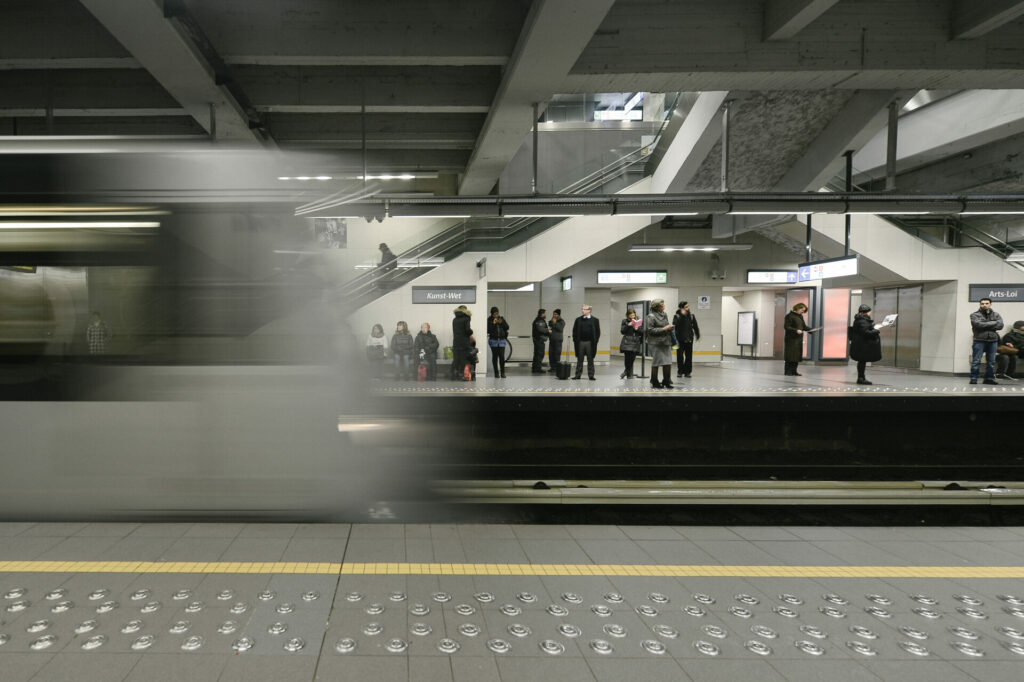One of Brussels' most-used metro lines will be interrupted in August as public transport operator STIB is working to increase its frequency. Shuttle buses will be provided on the affected part of the route.
STIB will be interrupting metro traffic on line 1 between Josephine-Charlotte and Stockel (the final stop) from 5 to 22 August. From Monday to Thursday, after 21:00, metro trains coming from Gare de l'Ouest will stop early, and passengers will have to alight in Woluwe-Saint-Lambert. Seven stops will not be serviced during this time.
"Passengers who use the metro line during these hours and on these days can use shuttle buses. The number of buses will be based on the average number of passengers who would travel by metro," Marleen Telemans, Programme Director for the Modernisation of the Metro, told The Brussels Times.
The shuttle bus will be extended to Merode to ensure passengers don't miss the connections with metro line 5 and tram lines 7 and 25. "Metro 1 will return in the other direction, so the other stops of the line will not be affected," Telemans said. The metro will also not be interrupted during rush hour, on Friday evenings or during weekends due to high passenger numbers at these times.
Speeding up modernisation
The operation of metros relies on signalling technology: a complex communication system which organises metro traffic safely and efficiently. It ensures that metros do not travel too fast or follow each other too closely to avoid crashes.
The current signalling system was implemented in 1976. While it is still safe, it does not allow for the interval between two carriages on the common route of lines 1 and 5 to be reduced. It is therefore being replaced with a new communication system named CBTC (Communication-based Train Control).
"The previous system is now very old, expensive to maintain, and no longer responds to our needs," STIB CEO Brieuc de Meeûs said. "A new system is needed to increase the metro line's frequency and make the network more efficient." He compared the shift to a classic wired telephone changing to a smartphone: "The old phones worked well, but mobile phones open new doors."
With the new system, a metro will service stops every two minutes instead of the current two minutes and 30 seconds as the carriages can run closer to each other. It can also adapt to real-life conditions (in case of an incident or delay, for example, dispatching will be able to see exactly where vehicles are). In the future, the technology will also allow for driverless metros.
Related News
- Railway deals: How to travel by train in Belgium and abroad this summer for cheap
- Tram 9, from Simonis/Elisabeth to King Baudouin
The installation works required for this technology have been carried out between 01:00 and 05:00 every night to minimise disruption to passengers. However, this four-hour period is not sufficient. "In this short time, material supplies need to be brought in, works have to be carried out, which then have to be checked before the materials are removed again. This complex puzzle makes efficient work hard," said Telemans. STIB therefore decided to disrupt part of the line to extend the work period.
Depending on the tests of this first phase, a second period of work – which will also cause disruption on the Stockel part of the line – will take place from the end of September to October. Based on these results, the Herrmann-Debroux axis of metro line 5 will be tackled either at the end of this year or at the start of 2025.

